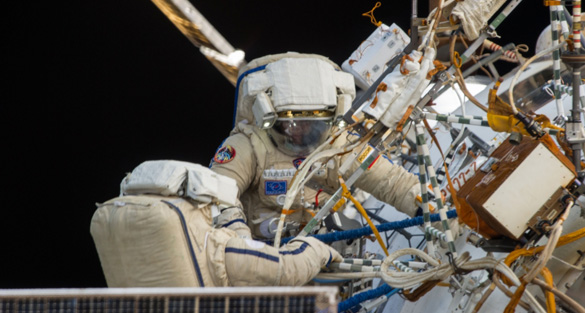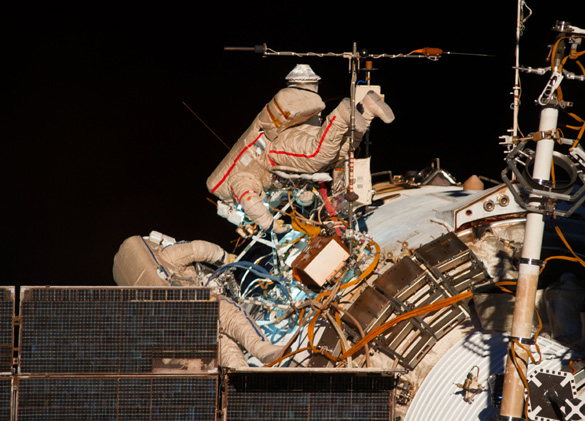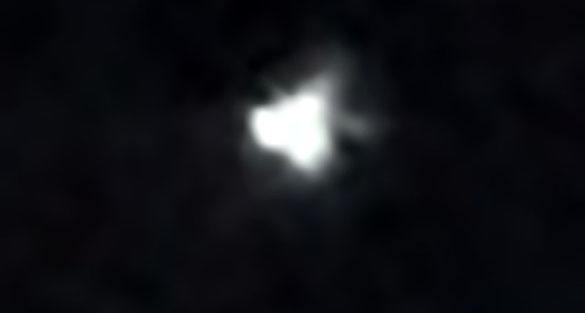Sea plankton found in space

Russian scientists say they have found traces of sea plankton on the surface of the International Space Station (ISS), proving that life can survive in the harsh conditions of space.
Russian ISS orbital mission chief Vladimir Solovyev told reporters that the discovery was made during the analysis of samples taken from the illuminators and the surface of the ISS. ITAR-TASS News Agency writes that this confirms, “some organisms can live on the surface of the International Space Station (ISS) for years amid factors of a space flight, such as zero gravity, temperature conditions and hard cosmic radiation.”

The experiments not only found that the sea plankton has survived on the ISS surface, but that they could develop.
How the plankton got onto the surface of the ISS is still not known. The plankton could have hitched a ride, or, according to Yahoo! News Australia, Solovyev offered another possibility, “It means that there are some uplifting air currents which reach the station and settle on its surface.”
Solovyev says, “Results of the experiment are absolutely unique. We have found traces of sea plankton and microscopic particles on the illuminator surface. This should be studied further.”
If life can survive adrift in space, it gives credence to the idea that life on earth could have originated from elsewhere. It just hitched a ride on a rock or chunk of ice. It also means that life can flourish in much harsher environments than previously thought. Space itself could harbor living creatures.
UPDATE 8/20/2014
NASA spokesman Dan Huot says they have not confirmed the sea plankton claims. He told Space.com, “As far as we’re concerned, we haven’t heard any official reports from our Roscosmos colleagues that they’ve found sea plankton.” Roscosmos is Russia’s Federal Space Agency.







I believe it was reported in the book “Area 51” by Annie Jacobs that insects were projected into space as a result of nuclear bomb tests in the 1950’s and 60’s. This was discovered when flight tests of the U-2 or A-12 yielded black spots on the windshields of these craft. The impact of the dead insect bodies upon the vehicles were not understood and actually stopped test flights due to a fear of a materials or some mechanical failure that may have led to a crash. Once studied, they determined the cause was due to these insects and safely resumed flights. My point in relating this is that first, truth can be stranger than fiction, and that it is possible for physical objects within the atmosphere to find their way out into orbit. While this does not explain the presence of these plankton on the space station if true, it places it in the realm of possibility. Maybe this is an already known occurrence in scientific circles, but it seems counter intuitive to a layman such as myself. Interesting at the least. 🙂
Tiamat…